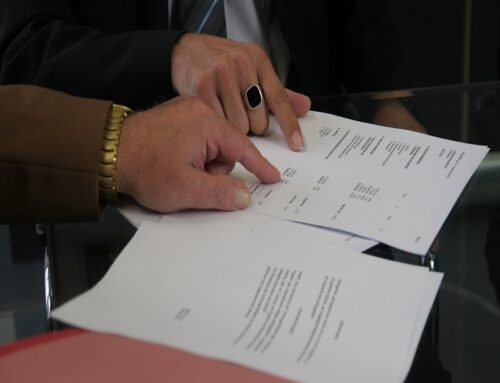Who Can Witness a Separation agreement in Ontario
Eligibility Criteria for Witnesses
When selecting a witness for a separation agreement in Ontario, it’s crucial to ensure they meet specific eligibility criteria to uphold the document’s legal validity. Here are the essential requirements:
- Must be 18 years or older: The witness must be of legal age, which in Ontario is 18 years. This ensures that the witness is legally recognized as an adult capable of understanding the significance of the document they are witnessing.
- Mentally sound to understand the significance of the document: The witness should be of sound mind, meaning they must possess the mental capacity to comprehend the importance and implications of the separation agreement in Ontario. This includes understanding the document’s content and the act of witnessing it.
- No direct interest or benefit from the agreement’s terms: A witness must be impartial, having no personal or financial interest in the outcome of the separation agreement in Ontario. This helps maintain the objectivity and credibility of the witness, ensuring that there is no conflict of interest that could compromise the document’s integrity.
Common Types of Witnesses
Various individuals can serve as witnesses for a separation agreement in Ontario, provided they meet the eligibility criteria. Common types of witnesses include:
- Trusted friends or neighbors without any vested interest: Individuals such as friends or neighbors who are not parties to the agreement and have no stake in its terms can serve as witnesses. Their familiarity with the signatories can add a layer of personal credibility, provided they remain unbiased.
- Professional witnesses like lawyers: Lawyers are often preferred witnesses for separation agreement in Ontarios due to their legal expertise and understanding of the document’s significance. Having a lawyer witness the agreement can also provide additional assurance of its legal validity and compliance with Ontario’s legal standards.
- Notary publics who are authorized to witness and certify documents: Notary publics are legally authorized to witness and certify documents, making them an excellent choice for witnessing a separation agreement in Ontario. Their official capacity and experience in handling legal documents ensure that the witnessing process is conducted properly and according to legal requirements.
Steps to Ensure Valid Witnessing
Ensuring valid witnessing of a separation agreement in Ontario involves several crucial steps:
- Preparation before the signing:
- Review the agreement thoroughly.
- Ensure all parties understand the terms and conditions.
- Arrange a suitable time and place for signing, ensuring all parties and the witness can be present.
- Verification of witness qualifications:
- Confirm the witness meets the legal criteria: over 18, mentally sound, and disinterested in the agreement.
- Check their identification to verify their identity.
- Proper documentation and record-keeping:
- The witness should sign the agreement in the presence of both parties.
- Document the witness’s details (name, address, contact information).
- Keep a copy of the agreement with the witness’s signature and details for future reference.
Potential Consequences of Invalid Witnessing
Failing to ensure proper witnessing can lead to several serious consequences:
- Legal challenges and disputes:
- The validity of the separation agreement in Ontario may be contested in court, leading to lengthy and costly legal battles.
- Possibility of the agreement being rendered void:
- Without a valid witness, the agreement might be declared null and void, necessitating the creation of a new agreement.
- Impact on the enforcement of the agreement:
- An invalid agreement can complicate or prevent the enforcement of its terms, potentially leading to financial and legal complications for the parties involved.
- An invalid agreement can complicate or prevent the enforcement of its terms, potentially leading to financial and legal complications for the parties involved.
Best Practices for Choosing a Witness
- Selecting an impartial and reliable witness:
- Choose someone trustworthy with no personal interest in the agreement’s outcome.
- Ensure the witness understands their role and responsibilities.
- Avoiding conflicts of interest:
- Do not select family members or individuals who might benefit from the agreement.
- Maintain objectivity by choosing someone who is not emotionally or financially involved.
- Consulting with legal professionals if necessary:
- Consider hiring a lawyer or notary public to witness the agreement.
- Legal professionals provide additional assurance of the document’s validity.
Additional Resources
- Links to legal resources and guides:
- Contact information for legal assistance in Ontario:
- Contact us: (647) 254-0909
Numan Bajwa is the Founding Partner at Bluetown Law – Family Lawyers. He earned his Juris Doctor from the University of Detroit Mercy School of Law (2011–2014) and holds an Honours degree in Criminology from the University of Windsor (2003–2008).









